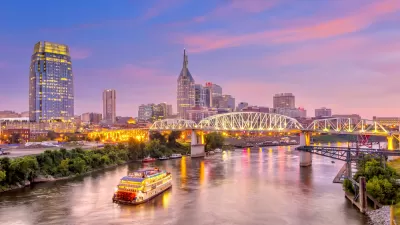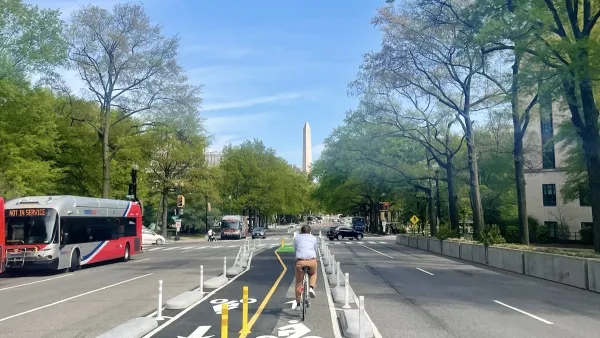Mass timber buildings up to 18 stories high will now be allowed in the Music City.

Nashville Mayor John Cooper recently signed into law new ruled regulating mass timber construction in Nashville, adopting standards set by the 2021 Edition of the International Building Code (IBC) and the 2021 Edition of the International Fire Code (IFC). California enacted the same codes in July 2022.
Before the new regulations, Nashville allowed for a maximum building height of six stories for mass timber developments. The new standards “will allow certain subtypes of mass timber developments a maximum height of 18 stories,” according to an August 8 press release published by the Metropolitan Government of Nashville and Davidson County.
Nashville already has a number of large mass timber buildings complete or under construction, including an 18,500 square-foot, two-story office building for The Community Foundation of Middle Tennessee; the 122,000 square-foot, five-story office building by Panattoni Development Company on Music Row; and the city’s largest mass timber building so far, a 200,000 square-foot Class A office space called Nashville Warehouse Co., completed by AJ Capital Partners in August 2021.
An article by Ryan Gandolfo for Capital Analytics Associates, published in November 2022, describes why Nashville is making space for mass timber.
FULL STORY: Metro Adopts Updated Mass Timber Construction Standards

Planetizen Federal Action Tracker
A weekly monitor of how Trump’s orders and actions are impacting planners and planning in America.

Chicago’s Ghost Rails
Just beneath the surface of the modern city lie the remnants of its expansive early 20th-century streetcar system.

San Antonio and Austin are Fusing Into one Massive Megaregion
The region spanning the two central Texas cities is growing fast, posing challenges for local infrastructure and water supplies.

Since Zion's Shuttles Went Electric “The Smog is Gone”
Visitors to Zion National Park can enjoy the canyon via the nation’s first fully electric park shuttle system.

Trump Distributing DOT Safety Funds at 1/10 Rate of Biden
Funds for Safe Streets and other transportation safety and equity programs are being held up by administrative reviews and conflicts with the Trump administration’s priorities.

German Cities Subsidize Taxis for Women Amid Wave of Violence
Free or low-cost taxi rides can help women navigate cities more safely, but critics say the programs don't address the root causes of violence against women.
Urban Design for Planners 1: Software Tools
This six-course series explores essential urban design concepts using open source software and equips planners with the tools they need to participate fully in the urban design process.
Planning for Universal Design
Learn the tools for implementing Universal Design in planning regulations.
planning NEXT
Appalachian Highlands Housing Partners
Mpact (founded as Rail~Volution)
City of Camden Redevelopment Agency
City of Astoria
City of Portland
City of Laramie





























